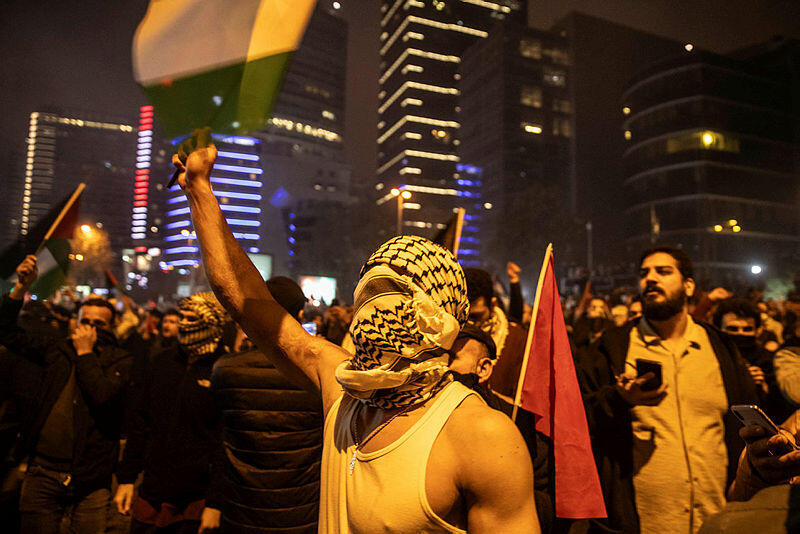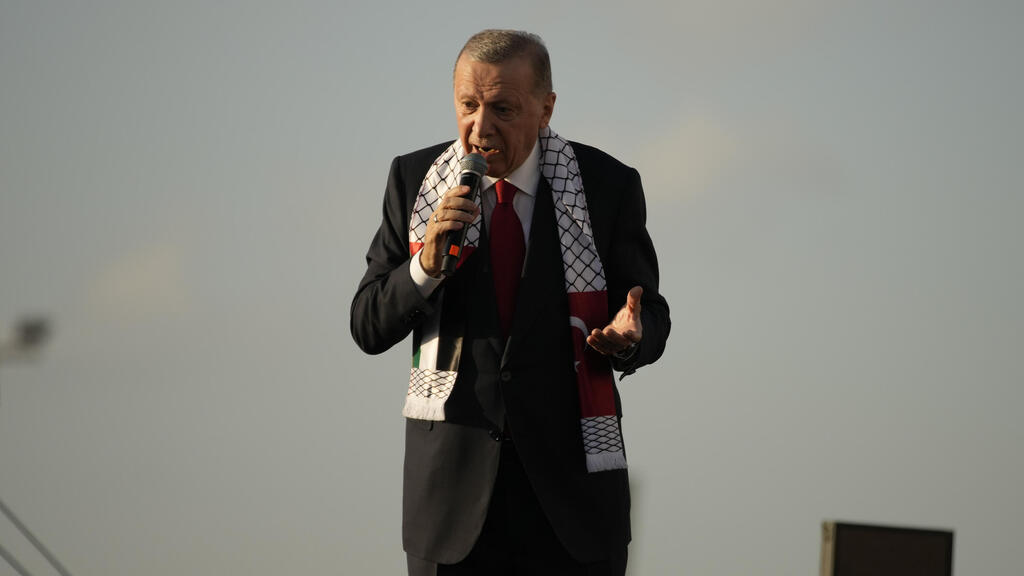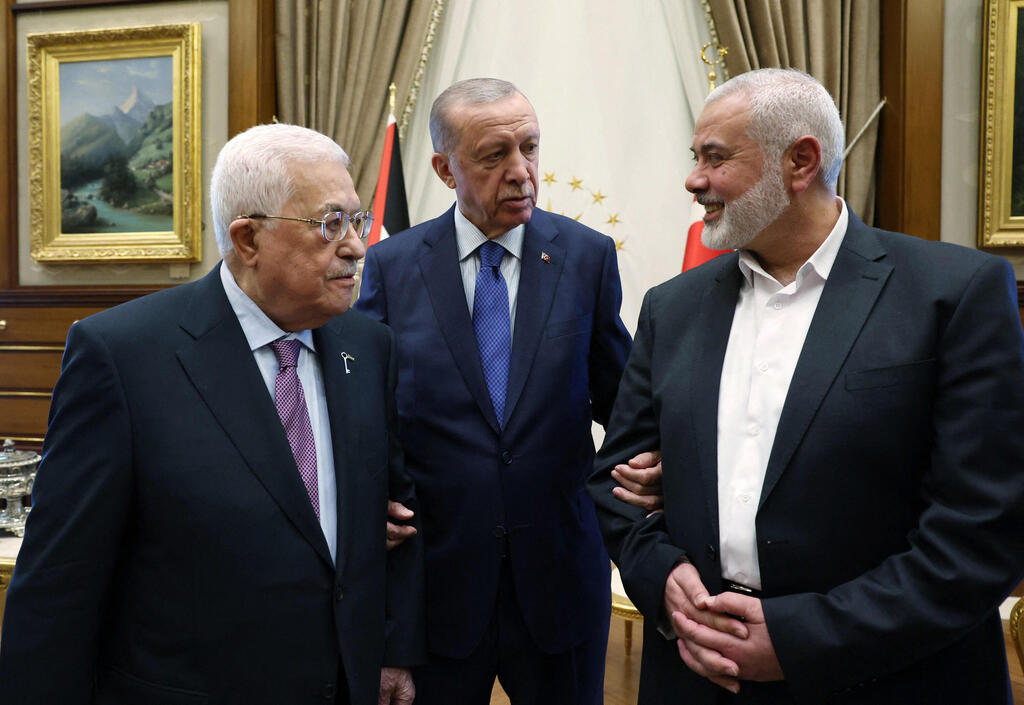Getting your Trinity Audio player ready...
The U.S. Treasury's top terrorism financing official said on Thursday he had discussed with Turkish government officials his deep concerns about Palestinian terrorist group Hamas raising funds in Turkey and potentially breaking local laws.
Read more:
Turkey is "prominent" in Hamas fundraising schemes and the group is likely to take advantage of that as it seeks more cash amid its war with Israel, Under Secretary of the Treasury for Terrorism and Financial Intelligence Brian Nelson said.
"We are profoundly concerned with Hamas's ability to continue to fund raise and find financial support (here in Turkey) for potential future terrorist attacks," Nelson told reporters in Istanbul between meetings with Turkish government officials and financial and business groups. Turkey's foreign ministry was not immediately available to comment.
Unlike most of its Western allies and some Gulf states, Turkey does not view Hamas as a terrorist group and hosts some of its members. President Tayyip Erdogan has called Hamas "freedom fighters" and criticized Israel as a "terror state" over its bombardment of Gaza in recent weeks.
The United States, Israel's closest ally, has sanctioned several Turkish entities and individuals in its effort to curb funding for Hamas following its Oct. 7 attack on Israel.
Nelson said Turkey was connected to Hamas' past efforts to raise funds from donors, investment portfolios, charities and non-profit organizations. Even if Turkey sees Hamas as legitimate, he said the group could still violate domestic laws, though he gave no specific example of this happening.
"There is sufficient opportunity for Turkey to address this problem under its own domestic legal authorities irrespective of U.S. sanctions," he said.
3 View gallery


Pro Palestinian demonstrators in Turkey during the Gaza war
(Photo: Getty Images Europe)
Nelson said Turkish officials had reminded him that Hamas was not a designated terrorist organisation in the country but also that Turkey would not tolerate violations of domestic laws including money laundering and direct funding of violent acts.
Washington says a Hamas portfolio of investments, estimated to be worth hundreds of millions of dollars, includes companies operating in Turkey, Sudan, Algeria, the United Arab Emirates and elsewhere.
Russia
Nelson also raised the prospect of more U.S. sanctions on Turkish entities suspected of helping Russia evade sanctions by transiting goods including chips, semiconductors and other components used in its war in Ukraine.
In the last 18-24 months, there has been a six-fold increase in the transit via Turkey of "high-priority dual-use" components to Russia, Nelson said. "Too many" Russian ships and planes were being serviced in Turkish ports and airports, he added.
"We're not getting the results that we want...in the context of (Turkey's) very sincere expressions of support for Ukraine," he said. Turkey says sanctions will not be circumvented on its soil and that nothing transiting is used in Russia's war effort.
Ankara has told Washington to provide proof of its claims given it opposes the sanctions on principle, and maintains good ties with both Moscow and Kyiv even as it condemns the invasion.
Turkish financial, shipping and air-transit sectors can expect Washington to remain aggressive as it uses "all of our authorities as creatively as possible to get at this challenge", Nelson said.
Russia invaded Ukraine last year and the war grinds on along largely stable lines.




